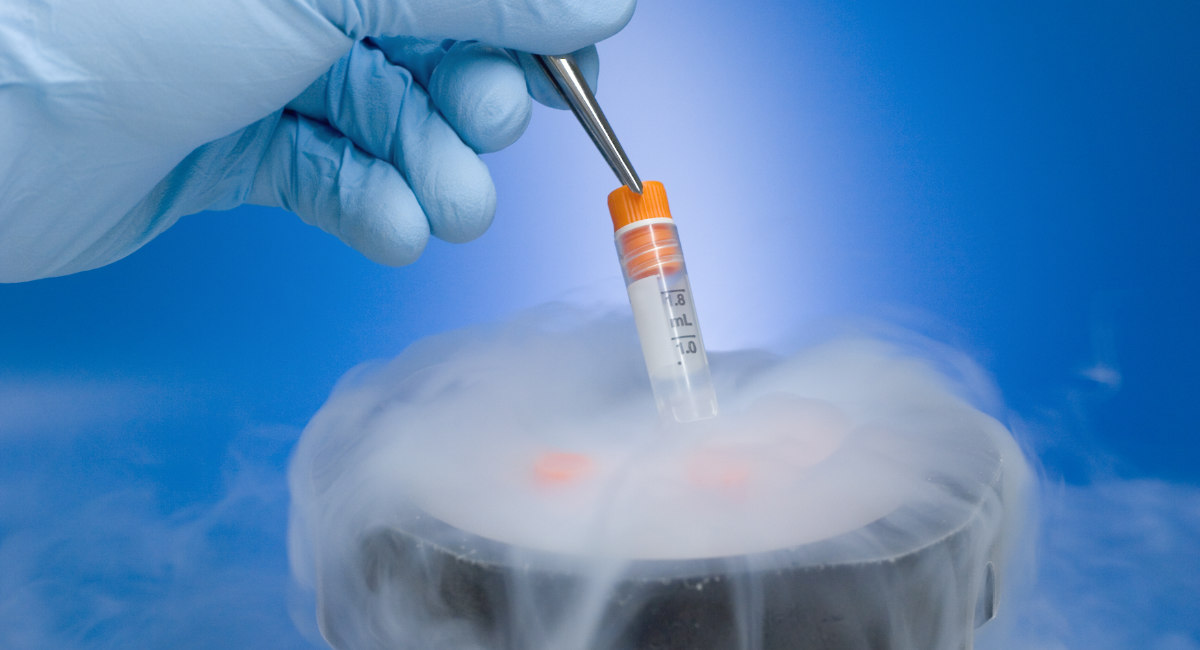The Michigan Supreme Court will determine the fate of a frozen human embryo whose parents have divorced. The Court will decide whether laws governing marital property or laws surrounding so-called ‘reproductive rights’ should be the guideposts when it comes to frozen human embryos caught in divorce battles.
Sarah Markiewicz and her husband David divorced, but they have a frozen embryo remaining since their use of reproductive technology. Sarah wants to give their child a chance at life by having him or her implanted in her uterus. Her attorney, Nick Curcio, argued to the court that it is her right to do so under the state’s 2022 Reproductive Freedom for All constitutional amendment. The court is determining if the case should continue by granting or denying Sarah’s right to appeal.
“We think that’s appropriate where Michigan has recognized this constitutional right to fertility care,” Curcio said.
The couple has four children, three of whom were conceived using in vitro fertilization and donor eggs — from Sarah’s sister. Sarah argued that at age 47, this may be her last chance to have a child. She said she would not require that her ex-husband contribute money or time to the child, who is biologically his child, and not hers.
However, David Markiewicz’s attorney, Trish Haas, argued that the court should look to court precedent, which has mostly sided with the parties who have sought to avoid procreation. Lower courts have sided with him because he was the one who was the biological parent of the embryo, making it “more his than hers.”
“Imposing unwanted parenthood on a parent is a serious consideration that should not be taken lightly,” said Haas. She argued that allowing his ex-wife to implant the child in her uterus would turn David into a sperm donor.
READ: Machines making humans: First baby born after ‘robot-controlled’ IVF
Curcio, however, argued accurately that “procreation has already occurred… Conception has already occurred.” He said the right to abort or carry to term has historically been extended to the gestational parent, which in this case would be Sarah Markiewicz.
Interestingly, the six justices who heard the case questioned how the state’s pro-abortion constitutional amendment related to a dispute over a frozen embryo. Chief Justice Megan Cavanagh considered whether the intent to parent should be measured from the time of conception or implantation.
This case is the latest example of the chaos, trauma, and loss of life that IVF and donor conception cause children conceived by artificial means, and the effects it has on couples. The child at the center of the dispute is the biological child of David Markiewicz and his former sister-in-law, as are three of the already-born children at the center of this divorce.
Psychology Today and Cofertility each state that using a sibling or relative as a sperm or egg donor and complicate relationships and family dynamics.
Research shows that there are negative effects on children conceived using donor eggs or sperm. However, when it comes to siblings donating eggs or sperm to siblings, relationships among the adults can be destroyed. One woman whose husband gave his sperm to his brother and sister-in-law told The Atlantic that their relationship with the other couple became “very formal.” She later learned from a reproductive specialist that this is common.
“I was just like, ‘Gosh, why hasn’t someone told us?’ Why was nobody saying, ‘This is a big deal, and it’s going to test the limits of your relationship’?” she said. “No doctor working at the cryogenic bank, nobody—nobody said, ‘Hey. Sit down. Think about the relationship and what’s gonna happen.’”








